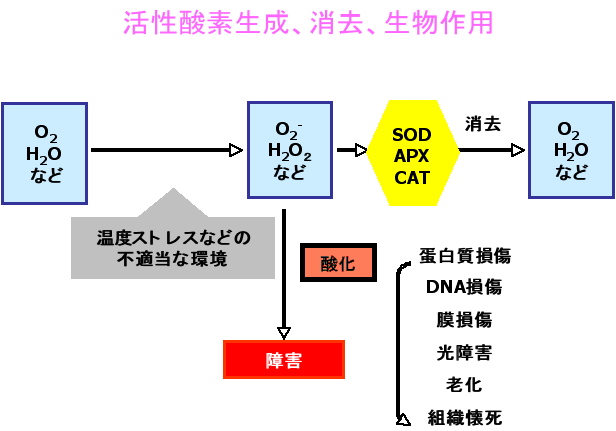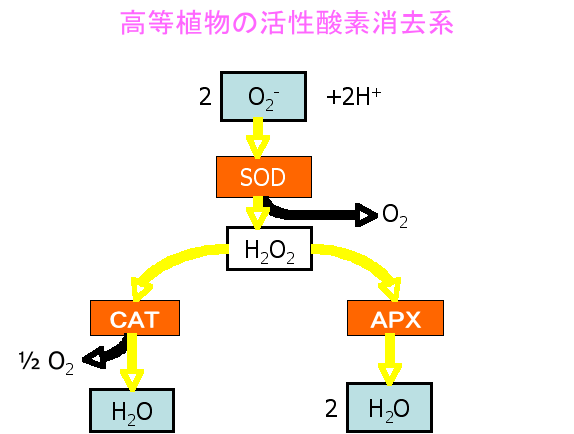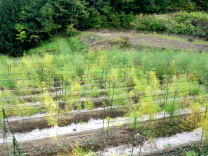

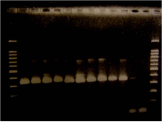
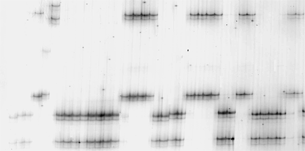
1. Mechanisms on asparagus decline in Japan and plant growth improving with arbuscular mycorrhizal fungus.
Asparagus (Asparagus officinalis L.) can remain profitable for 10-15 years if adequately managed. However, the asparagus producing regions in Japan, initial growth suppression, withering of replants, crown death and reduction in the quantity and size of the spears production have frequently occurred. This condition is known as asparagus decline. Asparagus decline is caused by abiotic factors (nutrient imbalance, deterioration of physical and chemical condition ex. allelopathy) and biotic factors (pathogens : mainly Fusarium species). In this study, existence of fusarium species in asparagus decline plants was investigated from the north to south parts in Japan by using PCR-SSCP analysis. In addition, tolerance to such biotic (disease) and abiotic (allelopathy) factors are estimated in mycorrhizal asparagus plants.
Arbuscular mycorrhizal (AM) fungi have the effect of promoting host plant growth mainly by enhancing phosphorus uptake through symbiosis.
 |
 |
 |
 |
|
Asparagus decline field in Japan
|
Bioassay of allelochemicals
|
PCR of microorganisms in decline roots
|
SSCP analysis
|
 |
 |
 |
|
Asparagus decline roots
|
Growth improving in healthy soil
L: cont., R: AMF |
Growth improving in allelopathy-suspected decline soil
L: cont., R: AMF |
2. Analysis of antioxidative ability in mycorrhizal plants under several environmental stress conditions.
Tolerance to environmental stress (such as temperature, disease, drought stress) and changes in antioxidative ability (SOD, APX activity, polyphenol and ascorbic acid contents) are investigated in vegatable crops (mainly strawberry and asparagus). AMF stimulated such plant antioxidative ability, especially under stress conditions.
